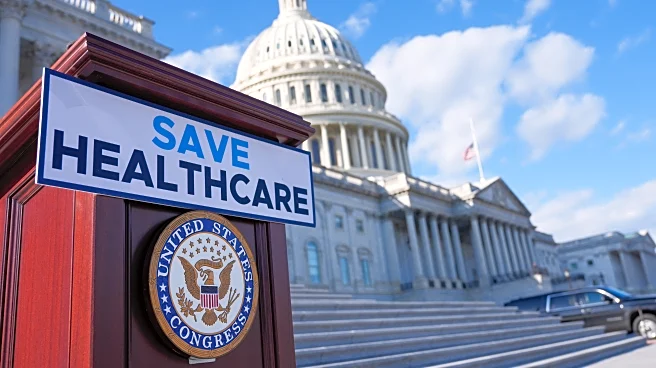What's Happening?
In 2025, fintech lenders are transforming the installment loan industry by removing traditional barriers and offering innovative solutions. These lenders are utilizing dynamic risk models that adjust based on real-time financial behavior, rewarding borrowers for positive actions like early bill payments and savings growth. This approach provides borrowers with greater control over their financial future and encourages responsible borrowing habits. Fintech platforms are embedding lending products within digital wallets and personal finance tools, allowing users to manage loans alongside their spending data, streamlining the borrowing process.
Why It's Important?
The shift towards fintech-driven installment loans is significant for the U.S. economy, as it democratizes access to credit for individuals with limited credit histories or irregular income. By focusing on real-time affordability and responsible financial behavior, fintech lenders are expanding credit access to underserved populations, including gig workers and freelancers. This evolution in lending practices promotes financial inclusion and empowers borrowers to improve their financial health, potentially reducing default rates and enhancing economic stability.
What's Next?
As fintech lenders continue to innovate, traditional banks may need to adapt their lending models to remain competitive. The integration of lending products into digital wallets and personal finance tools is likely to become more prevalent, offering borrowers seamless access to credit. Regulatory compliance will remain crucial, with fintech platforms incorporating local and national lending laws into their processes to ensure transparency and trust.
Beyond the Headlines
The rise of fintech lenders highlights the cultural shift towards digital-first financial solutions and the growing importance of nontraditional credit metrics. This trend may lead to broader discussions on the role of technology in financial services and the ethical implications of data-driven lending practices.









